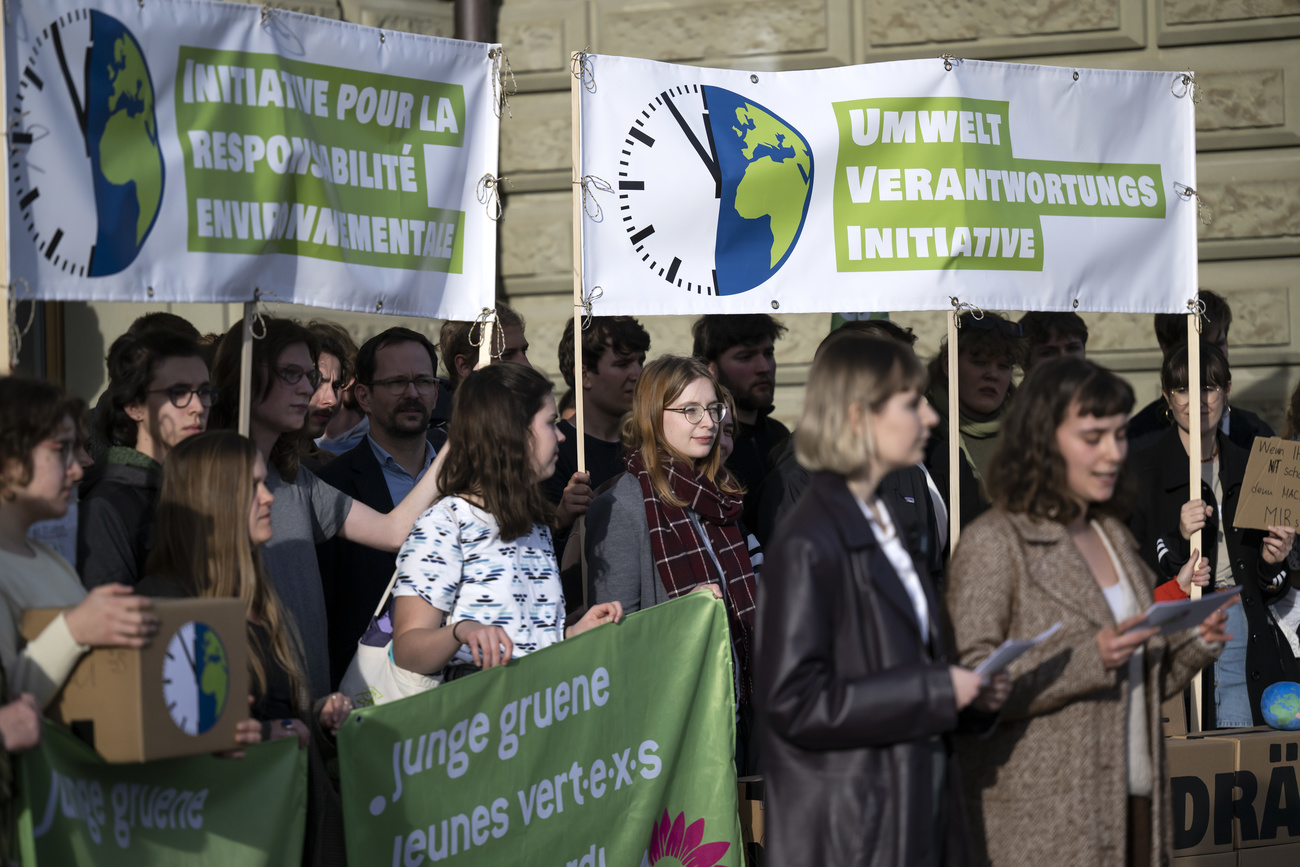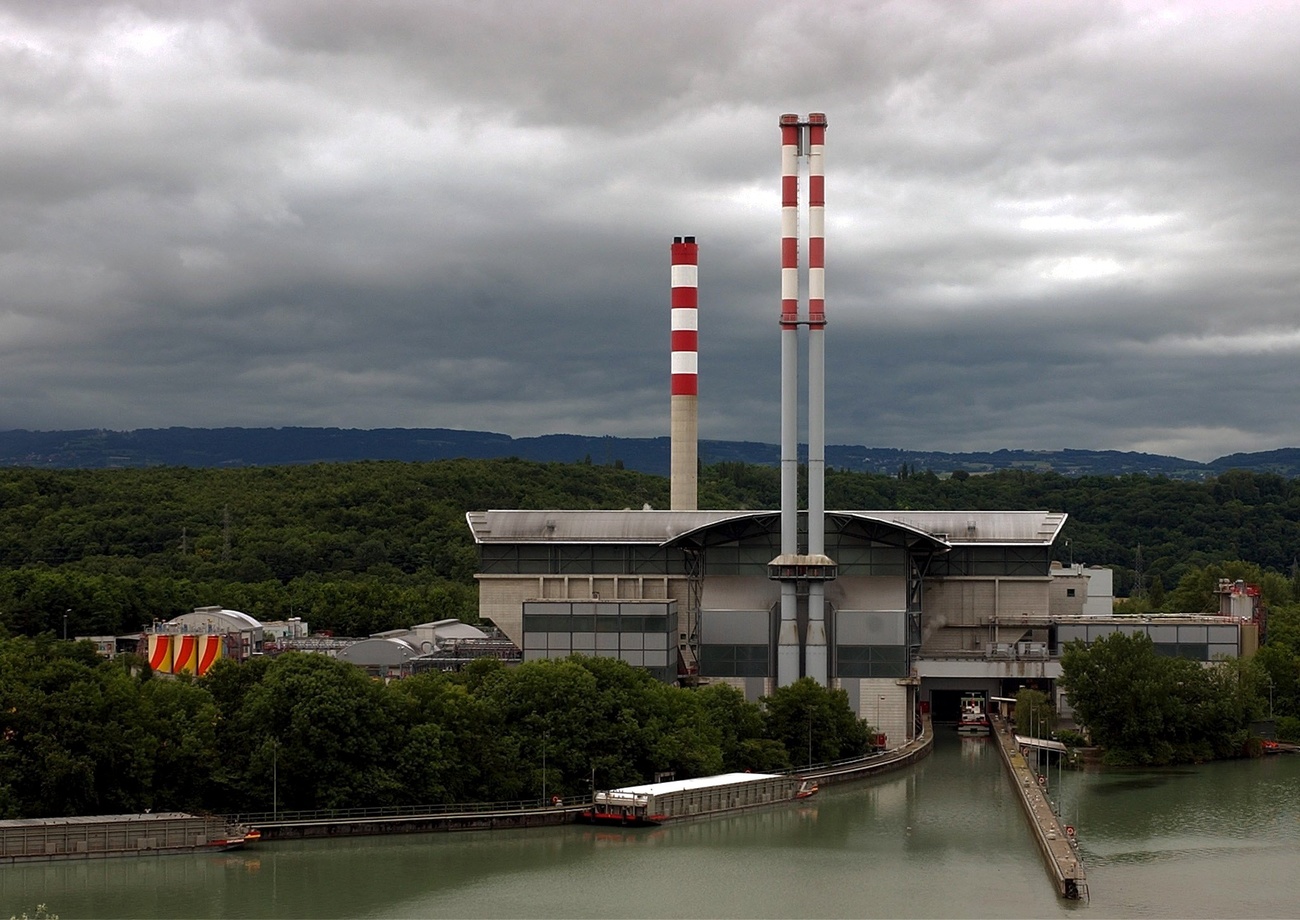Swiss ‘environmental responsibility’ initiative: essential for the left, unacceptable for the right

On February 9 the Swiss will vote on a popular initiative on environmental responsibility. It calls for adapting the economy to the planet’s ecological limits within the next ten years. Opponents argue that it would harm Switzerland’s prosperity.
By May 27, Switzerland had already consumed its 2024 share of resources that the planet is able to regenerate. This date marked its annual “Overshoot Day”, a concept developed by the international NGO Global Footprint Network and recognised by the Swiss government. In other words, if every person on the planet lived as the Swiss did this year, humanity would need 2.5 Earths to survive long-term.
To protect the planet, the youth wing of the left-wing Green Party wants Switzerland to make its Overshoot Day a thing of the past. In February 2023, the young Greens submitted the popular initiative “For a responsible economy that respects planetary boundariesExternal link”. On February 9, Swiss citizens will vote on the proposal, which is also known as the initiative “For environmental responsibility”.
What does the initiative call for?
The initiative proposes a new constitutional article obliging the national economy to operate within nature’s capacity for renewal. Resource use and pollution would not be allowed to exceed what ecosystems can withstand.

More
A ‘no’ vote forecast for the ‘environmental responsibility’ initiative
Respecting planetary boundaries would require a massive reduction in the environmental harm caused by consumption. One concrete example: the country would have to decrease its per capita carbon footprint by more than 90%, according to a study by Greenpeace Switzerland.
The federal government and the cantons would be given ten years to reach this goal. The initiative committee does not offer specific measures, but it does urge the public authorities to avoid any that would cause social injustice.
What are the planetary boundaries?
The concept of planetary boundaries was proposed in 2009 by the Stockholm Resilience Centre at Stockholm University. It defines nine limits that must be observed to preserve healthy ecosystems.
The initiative focuses on six of these boundaries: climate change, loss of biodiversity, water consumption, land use, nitrogen emissions and phosphorous emissions.
Switzerland has already exceeded its limits for biodiversity loss, climate change, water consumption, and nitrogen emissions, according to a recent Greenpeace study.
What are the arguments in favour of the initiative?
The young Greens believe that environmental protection should be a priority enshrined in the constitution, and it should serve as a framework for the economy and for society.
Their initiative aims to protect elements critical for humanity’s survival: access to nutritious food, potable water, and clean air.
+ Landmark ruling: Switzerland’s climate policy violates human rights
The initiative committee feels the economy is heavily responsible for breaking planetary boundaries because it consumes more resources than nature can handle. This leads to environmental crises, extreme weather events, and irreversible ecosystem changes.
What are the arguments against the initiative?
The government and parliament believe the initiative goes too far, especially in setting a ten-year deadline for making the necessary changes. The government would be forced to take severe measures with negative economic and social consequences. It argues that the requirements would “generate enormous and disproportionate transformation costs that would be unsustainable for the state”.
The government also emphasised that the constitution already includes several clauses on sustainability. It feels the existing provisions are balanced and do not require any additions.

More
Environment minister outlines Swiss efforts to limit global warming
The business federation economiesuisse points out that low resource consumption is associated with poverty. It also notes that only 15 countries currently have an environmental footprint below planetary “overshoot” that would satisfy the initiative’s requirements. These are primarily countries coping with economic and political instability such as Afghanistan, Haiti, and Madagascar.
Who are the supporters and opponents?
The initiative is backed by a broad alliance of parties and NGOs, including the Greens, the left-wing Social Democratic Party, the Social Democrats’ independent youth wing, Greenpeace, the Association des petits paysans (a farmers’ organisation), and the Climate Seniors Association. In addition, 83 Swiss scientists have declared their support.

More
Switzerland plummets in climate protection ranking
Enthusiasm for the proposal is thin beyond the ranks of the left and environmental organisations. The right-wing Swiss People’s Party, the centre-right Radical-Liberal Party, the centre-right The Centre Party, and even the centrist Liberal Green Party all challenged the initiative during parliamentary debates. The business community also opposes the proposal.
What are other countries doing?
Several European countries have strengthened or are currently strengthening their legal bases for resource preservation. These include France, Italy, Germany, Austria, the Netherlands, and Sweden. The French environmental codeExternal link, for example, recommends a transition to a circular economy with a neutral environmental footprint. In Germany, the 2021 sustainable-development strategyExternal link states that planetary boundaries must form the basis for all political decisions.
Edited by Samuel Jaberg. Adapted from French by K. Bidwell/ts
More

More
Newsletters

In compliance with the JTI standards
More: SWI swissinfo.ch certified by the Journalism Trust Initiative













You can find an overview of ongoing debates with our journalists here . Please join us!
If you want to start a conversation about a topic raised in this article or want to report factual errors, email us at english@swissinfo.ch.